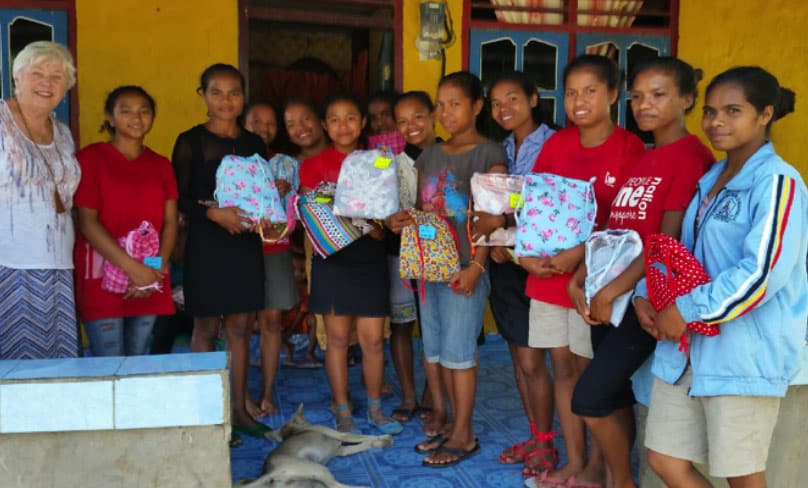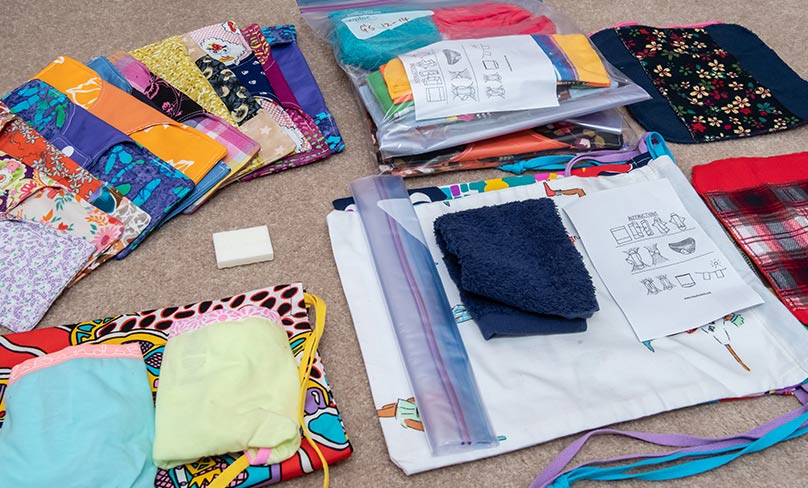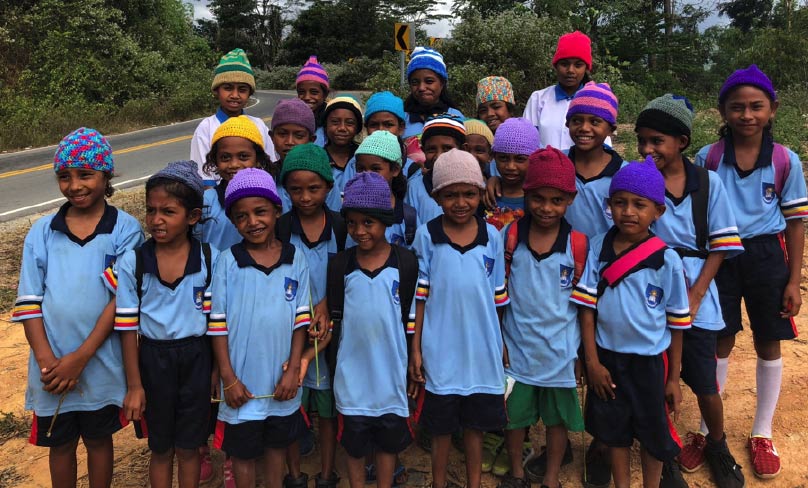
Women sew up a solution for Timor Leste
A community of women in the Blue Mountains are sewing up a sustainable solution to an age-old problem for girls and women living in Timor Leste.
Parishioners of St Patrick’s parish, Lithgow, and St Vincent’s Parish Portland, Joan Applin, Pat Ray and Maureen Flynn co-ordinate the monthly sewing days, with a break over the winter months, to create feminine hygiene kits.
They were inspired by the Days for Girls International charity and a social justice talk in 2015 at their parish given by former Australian Federal police officer Libby Bleakley who had spent time stationed in Dili.
Ms Bleakley now runs a youth and community learning centre in Timor and helps to distribute the kits.
“She described the plight of women and girls in Timor Leste who could not afford commercial sanitary products [when menstruating] and older women with no protection for their incontinence we decided that we could do something for those less fortunate than ourselves,” said Mrs Applin.
“Libby saw that girls were missing a week of school or work each month and often resorting to corn husks or old newspapers because they didn’t have access to sanitary products.
“Even if they could afford them, they have no means of disposing of them.”

Handmade hygiene kits helps change the lives of Timor Leste women
The washable kits include handmade cloth shields with a waterproof inner layer and pockets for cloth padding, pairs of underwear, washcloth and small bar of soap, and ziplock bags to keep clean items separate from soiled ones.
The whole lot is put inside a pretty cloth drawstring bag.
“The kits are washable and last for about two years, and are never sold but given to those in need,” said Mrs Ray.
“They have changed the lives of so many women and girls in Timor.
“We have about six working bees a year with 25 – 30 ladies helping each month. Each kit is quite labour intensive but numerous people make up the production line with cutters, sewers, ironers and checkers all willing to help.”
Each kits costs $15 to make, but the thrifty women are forever on the lookout for discount fabric and will never say no to donations of fabric and wool to keep costs down.
They also benefit from coin donations from parishioners and friends, and run small raffles and stalls to help offset costs, with an annual High Tea in September as the major fundraiser.

“One of our biggest challenges is paying the $500 fee per shipment to get off the wharf twice a year,” says Mrs Ray.
“Other than that we are able send the two shipments each year to Timor Leste for free, through partnerships with a trucking and a shipping company.”
As well as the hygiene kits, the industrious women turn donated wool into beanies, baby wraps, baby booties, baby clothes, blankets and more.
Since 2015 the group have sent 1145 hygiene kits to Dili, with another 200 kits headed there this week.
It has also sent 100 baby bundles and 30 hygiene kits to Papua New Guinea, 125 pamper packs to Coonamble for drought-affected farmers’ wives and 100 hygiene kits to Rwanda.
“It’s so exciting to see all our work is put to good use,” said Mrs Applin.
